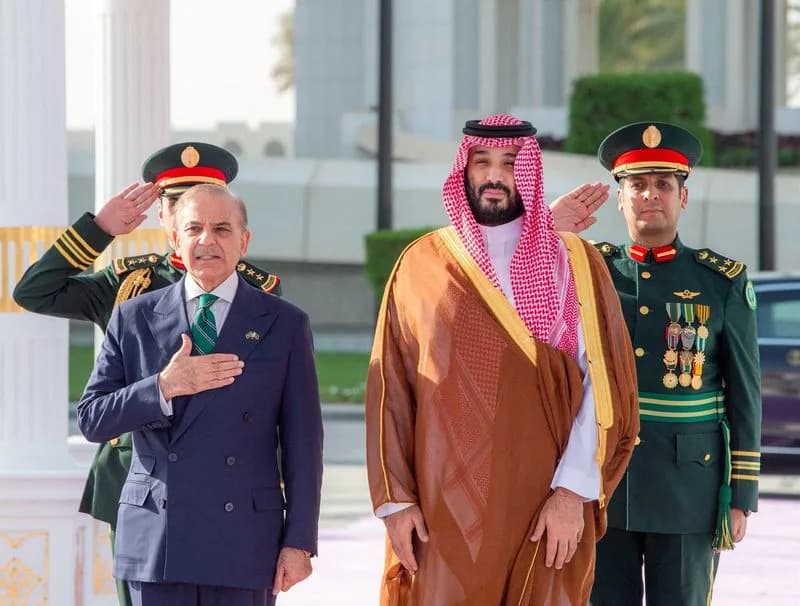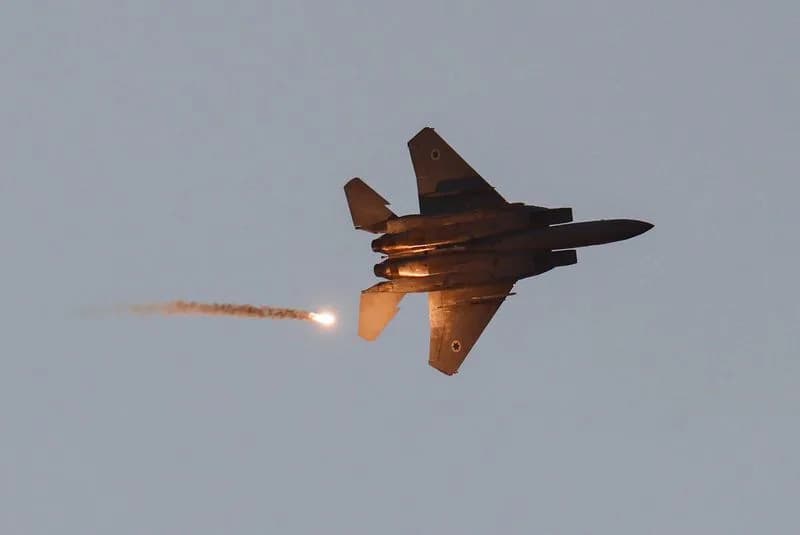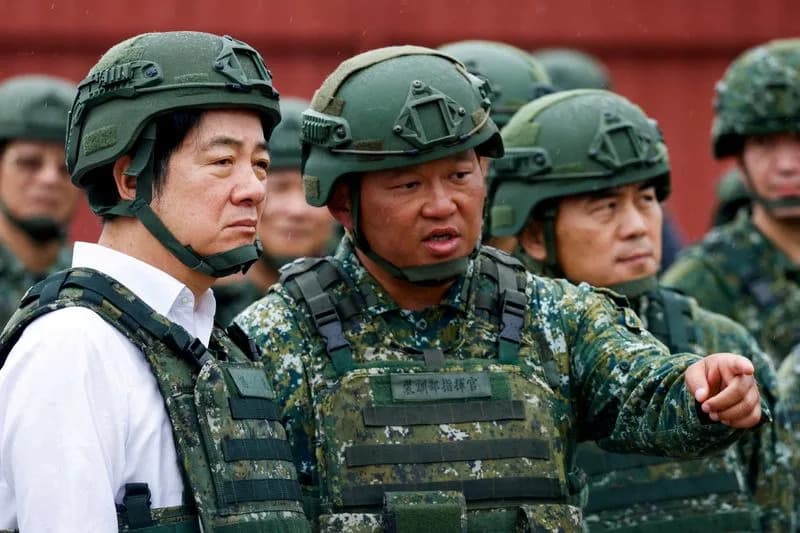President Trump designated Saudi Arabia a major non‑NATO ally and announced a strategic defence pact that includes planned arms deals, civil nuclear cooperation and broader economic ties. The White House approved potential future F‑35 deliveries to Riyadh — reportedly a request for 48 jets — and Riyadh agreed to buy 300 US tanks. The package forms part of almost $1 trillion in Saudi investment in the US, with roughly $142 billion tied to F‑35 procurement, and raises concerns about regional military balances. Saudi officials say they will consider joining normalization accords with Israel only after a credible path to Palestinian statehood is guaranteed.
US Elevates Saudi Arabia to Major Non‑NATO Ally and Clears Potential F‑35 Sale in Strategic Defence Pact

President Donald Trump announced that Saudi Arabia has been formally designated a major non‑NATO ally of the United States as part of a sweeping set of agreements reached during Crown Prince Mohammed bin Salman's visit to Washington. The leaders unveiled a strategic defence pact alongside deals covering arms sales, civil nuclear cooperation, artificial intelligence and critical minerals.
What the designation means
The "major non‑NATO ally" label grants Saudi Arabia access to a range of military and economic privileges but does not create binding US security commitments. The White House described the new strategic defence agreement as strengthening deterrence across the Middle East, easing the ability of US defence firms to operate in Saudi Arabia, and securing additional burden‑sharing funds from Riyadh to offset US costs.
Arms and procurement
As part of the announcements, the White House said it had approved future deliveries of F‑35 stealth fighters to Saudi Arabia, while Riyadh agreed to purchase 300 American tanks. If completed, the sale would mark the first time the United States has exported the fifth‑generation F‑35 to the kingdom; reports indicate Saudi Arabia has requested about 48 aircraft. Officials said roughly $142 billion of the near‑$1 trillion in Saudi investment announced for the US is tied to F‑35 procurement.
"They've been a great ally. Israel's been a great ally. ... As far as I'm concerned, I think they are both at a level where they should get top of the line," President Trump said when asked about potential effects on Israel's qualitative military edge.
Regional implications and Israeli concerns
The potential transfer of F‑35s represents a notable shift in US policy and could alter military balances across the region. Until now, Israel had been the only country in the Middle East operating F‑35s. Israeli officials and advocacy groups reportedly tried to block the sale, citing laws and policies designed to preserve Israel's qualitative military edge.
Nuclear cooperation and political conditions
The two countries also signed a declaration marking completion of negotiations on civil nuclear cooperation, establishing a legal foundation for a long‑term civil nuclear energy partnership. Saudi leaders said they would consider joining normalization frameworks such as the Abraham Accords only after a credible, guaranteed pathway to a Palestinian statehood is secured. Prince Mohammed reiterated Riyadh's position that Saudi accession depends on measurable progress toward a two‑state solution.
Officials described the package of economic and defence agreements as broader than individual investments, emphasizing deeper business, technology and security ties that both sides say could reshape regional politics.
Help us improve.




























